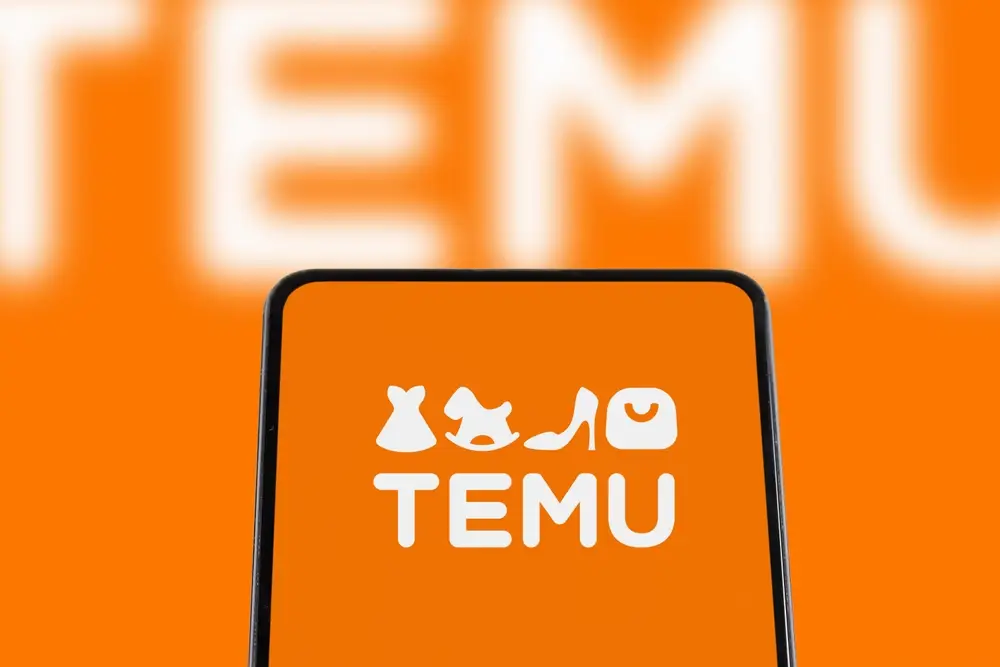Temu is the viral discount shopping app known for its shockingly low prices and endless product listings. And if you’ve ever shopped on it, you might want to pay attention. In 2025, Temu became the target of multiple class action lawsuits and state attorneys general investigations across the United States.
The lawsuits accuse the Chinese-owned e-commerce giant of secretly collecting users’ personal data, installing hidden tracking software, and posing a potential national security risk. Millions of Americans who downloaded or used the Temu app could now be eligible for compensation as part of the growing Temu Class Action Lawsuit, which has sparked nationwide concern.
The allegations are raising serious questions about how much privacy consumers are trading for convenience. In turn, this class action has evolved into one of the most closely watched Temu data privacy lawsuits of the year.
What is the Temu Class Action Lawsuit About?
The lawsuits accuse the Chinese-owned e-commerce company of data theft, privacy violations, and even posing a potential national security risk, issues now central to the ongoing Temu data privacy lawsuit.
According to the filings, Temu has allegedly been operating as a “data-harvesting business” disguised as a shopping platform. Multiple lawsuits claim that the app secretly collects sensitive personal and financial data without users’ consent, harvesting everything from contacts and photos to location data. Investigators allege that Temu’s software functions like spyware—gaining access to phone files, microphones, and Bluetooth networks—while misleading consumers about the extent of its data collection practices.
These Temu data theft claims suggest the app could be far more invasive than most users realize. At the heart of these lawsuits is the concern that Temu, owned by PPD Holdings Inc. (formerly Pinduoduo), could be sharing data with Chinese government entities under a law that requires Chinese companies to provide information when requested. Critics argue that this makes Temu not only a consumer privacy issue but also a potential national security concern.
Temu has denied all allegations, stating, “We categorically deny the allegations in these lawsuits and intend to vigorously defend ourselves against them.” Still, the growing number of lawsuits filed both federally and at the state level suggests that the issue may be far from isolated.

Who Is Involved in the Case?
The lawsuits target Temu’s operating company, Whaleco, Inc., and its parent company, PDD Holdings. These entities are accused of deceptive trade practices and privacy violations. The case Ziboukh et al. v. Whaleco Inc., filed in the Northern District of Illinois, is one of the most prominent federal class actions so far and is a major example of a Temu user privacy allegation case gaining national attention.
Several state attorneys general offices, including Nebraska, Kentucky, and Arkansas, have also launched independent lawsuits against Temu. These state actions generally allege that the company illegally harvested residents’ phone data, installed malware, and shared consumer information abroad. Each state is seeking restitution for its residents and civil penalties for the alleged misconduct.
On the other side of the courtroom are millions of American consumers, ordinary people who downloaded or used the Temu app. Many were likely drawn to the platform’s low prices without realizing their personal information might have been compromised. Plaintiffs argue that even users who never made a purchase were still exposed to privacy risks simply by installing the app, further fueling concerns about a large-scale Temu user privacy violation case potentially affecting millions.
Who Qualifies and How Much Can You Claim?
If you’ve ever downloaded or used the Temu app or website, you may qualify to join one of the ongoing class actions. Eligibility generally includes anyone who created an account, made purchases, or shared personal or financial information through the platform. Some lawsuits even extend eligibility to people who never bought anything but had their data collected through the app.
Because the lawsuits are ongoing, no settlement has been reached yet. However, if the cases are successful, consumers could be entitled to financial compensation. Past data privacy settlements suggest that payouts might range from $100 to $5,000 per person, depending on the extent of the harm and the final court ruling. Compensation could also include reimbursement for identity theft expenses, unauthorized charges, and potentially stronger privacy protections moving forward.
How to Submit Your Claim
If you think you might be eligible, it’s important to be prepared while the lawsuit develops. Begin by saving any evidence of your Temu usage, such as registration emails, purchase receipts, or screenshots of suspicious account activity. These records may help support your claim later.
Next, keep an eye on official class action or law firm websites, as these will post verified claim forms once settlements are approved. You won’t need to pay to participate, as legitimate class action claims are usually free.
If you receive notice of an approved settlement, fill out the claim form before the deadline and attach any requested documentation. Be sure to read the terms carefully: joining a class settlement typically means you’ll waive your right to sue Temu individually in the future.
Frequently Asked Questions (FAQ)
Yes. Many lawsuits include anyone who downloaded or used the app, regardless of whether they made a purchase. The alleged privacy violations stem from the app’s data collection, not the number of transactions.
Even if you haven’t experienced identity theft, your personal data may still have been collected without consent, which qualifies as harm under many privacy laws.
There is no set timeline. Settlements could take months or even years to finalize, depending on how long it takes for courts to review and approve the agreements.
Keep records of your Temu activity and watch for verified updates from class action administrators or law firms handling the cases. When official claim forms become available, you’ll be ready to submit your information quickly.




Add Comment